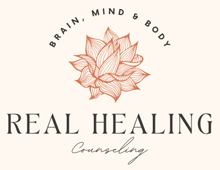Eating Disorders / Body Image Issues
Do you find yourself obsessing about how your body looks?
What life with an eating disorder feels like…
All of these behaviors also often lead to/follow binge eating. These behaviors are not associated with a certain body type or size. Sometimes we may tell ourselves it’s “not a problem” because we are not at a certain weight. Despite what the thoughts in your head may be screaming, it is not about the weight. This has been a way for you to cope with emotional distress and past trauma.
Your eating disorder may have been (and still might be) your only source of comfort when things feel too difficult. That comfort can only “work” for so long and unfortunately inevitably leads to more pain.


Eating disorders are not just about a relationship with food but, more importantly, a relationship with the self. Eating disorder behaviors often revolve around a detachment from the body stemming from trauma. Though the focus of someone battling an eating disorder may seem to be about how the body looks – it is usually a method of escapism and disconnection. Often, someone is coping with unresolved trauma through seeking control. And what is something you can try to control when you feel powerless? Your body and what you do to it. Unfortunately, this often means turning to damaging behaviors like restricting, binging, and purging.
Many challenges show up with eating disorders that have nothing to do with food! Some of these tend to be:
HOW CAN THERAPY HELP YOU HEAL FROM YOUR EATING DISORDER AND RESOLVE YOUR BODY IMAGE ISSUES:
We will provide education, as well as somatic practices and inner child healing to work towards reconnecting with the body and honoring the parts of you who became disconnected.
REAL HEALING COUNSELING CAN HELP YOU GROW YOUR TOLERANCE TO DISCOMFORT, REGULATE YOUR NERVOUS SYSTEM, BUILD ACCEPTANCE TOWARDS YOURSELF, AND LEARN THE SKILLS TO MAINTAIN A HEALTHY RELATIONSHIP WITH YOUR BODY
